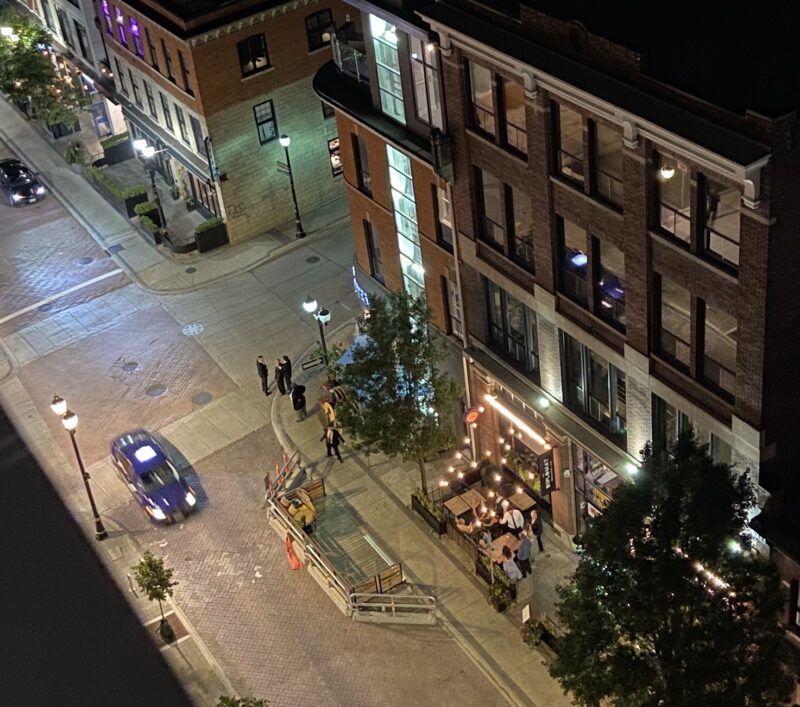An advice often given to writers is to not attempt to write about a time period until it’s over, only leaving echoes in its wake. Only when a new era has begun is it safe to write about it—just like you can’t properly describe what it’s like to be fifteen until you’re sixteen. You couldn’t quite sum up all the joys and problems of a certain era until it has ended and another one has started.
“Echoes of the Jazz Age” by F. Scott Fitzgerald is a sort of lament for the brilliant and depraved period that the Jazz Age was in the 1920s. He abided by the rule: he wrote the essay two years after it ended in 1929. He described the period as a “dance” and a “borrowed time.” But at the same time he himself seemed to be reeling from everything the “borrowed time” had been, for him and all the other Americans who revelled in it. “The present writer,” he says, “already looks back to it with nostalgia…” if it’s possible to feel nostalgic for something so fresh in everyone’s minds still. And although, on the other hand, “after two years the Jazz Age seems as far away as the days before the War.” The COVID pandemic had me feeling that way: though unlike the Jazz Age which had a clear closing the pandemic kind of diminished and fizzled out, leaving life uncertain, it also left many “echoes” of its own as it drained away somewhere between my graduation in 2021 and the present 2024. Those days feel both very far and very close still.
Other than The Great Gatsby, another famous English novel set in 1920s New York is House of Mirth by Edith Wharton, and present in these books as well as Fitzgerald’s essay are the ‘travelling Americans.’ Fitzgerald characterizes them as a certain breed, those headed off to Palm Beach (Florida) and Deauville (France), or enjoying summer Riviera (also France), or roaming through more “exotic” destinations such as the Mediterranean, Russia, and Central Africa. They are a breed which Fitzgerald describes as bohemian: pouring into the foreign coasts by boatfuls, each crowd rowdier than the last. I picture this as a hedonistic version of floods of refugees pouring into a safer country’s coasts, but not without something sinister about them.
Fitzgerald identifies this sinister quality as a “nervous energy” in a picture otherwise joyful and prosperous. The word jazz, he says, is associated with “a state of nervous stimulation, not unlike that of big cities behind the lines of a war.” Perhaps he foresaw much more than what the others did in the long-drawn-out party of ten years that the Jazz Age was. In every party after all is always a certain undercurrent of anxiety that everyone feels but collectively agrees to ignore. Am I in the right place? Am I enjoying myself too much, or not enough? Should I be here with someone else? Should I have one more, since I’ll have to be sober tomorrow, next month, in five years? We all have anxieties stemming from different things, but I think a common one is the fear that all this will end. Youth, jazz, cocktails and whatnot. And wealth and prosperity.
Fitzgerald speaks of some of the fates of his close friends. Suicide, murder-suicide, killed in a bar, falling to their death from a skyscraper in New York. One who writes to him from a nerve sanatorium. All of these tragedies, Fitzgerald says, occurred during the boom and not the depression. This seeming paradox, I think, is something we speak of as unexplainable but will feel to be true. Not everything in life makes sense but in one way or another we see people inexplicably prosper in times of hardship and fall to their doom in times of prosperity. The pleasure-seeking that flourished so vividly during the Jazz Age was a dangerous thing, and Fitzgerald knew it—it was “borrowed time anyhow.” All through the essay Fitzgerald speaks cynically and maybe it was his cynicism that saved him—or he gained his cynicism after the Jazz Age, since I know that Fitzgerald himself was at one point up there at the peak of it all. It was just the ones who revelled a little too freely in the pleasures of the era who were swept away with it when the tide drew away abruptly in 1929, leaving behind a barren shore.
The essay concludes during a time where the “belt is tight” and one must keep their expression severe and disapproving as they speak of the Jazz Age. But, Fitzgerald says, there are echoes of it everywhere, lingering on North American and European shores like “a ghostly rumble among the drums.” Perhaps the author himself misses it, because for all his penetrating observations of the foolishness of the era, he seems to have trouble bidding it goodbye.
